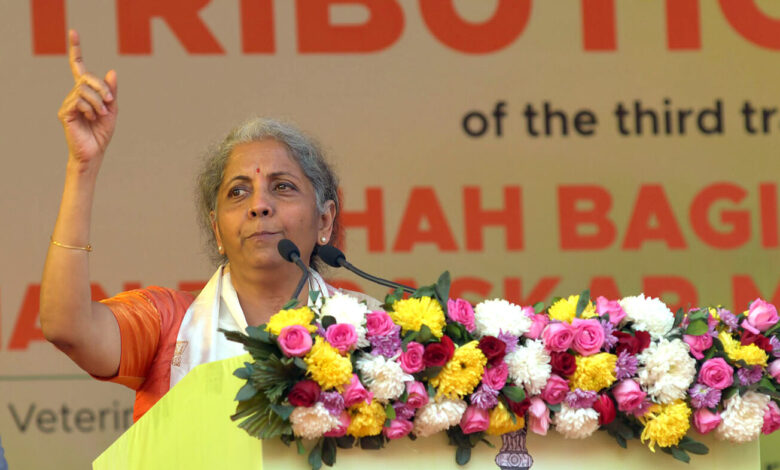Priority will be given to social and rural welfare programs in the budget

The Finance Minister may face little resistance in increasing allocations for all ministries related to rural areas and welfare. Allocations for defense, railways, road transport, consumer affairs, food, and public distribution will likely remain significantly high as part of the total allocation. Increasing expenditure on health, education, and social services is now a political-economic necessity for the Finance Minister.
The Finance Minister should not face difficulties in increasing social and rural expenditure, as tax collection is better than expected and the government has received a windfall profit of Rs 2.1 lakh crore from RBI, achieving fiscal deficit targets. Allocation for social and rural services and welfare programs can be increased without any pressure. There is sufficient amount in the government treasury for an allocation of more than Rs 50-60 thousand crore for these services. Expenditure on social and rural services comes under revenue expenditure. In the interim budget, revenue expenditure was kept at Rs 36.54 lakh crore with an increase of 3.2%, which could increase to Rs 37 lakh crore.
BJP has promised in its Lok Sabha election manifesto to include all senior citizens over 70 years of age in the Ayushman Bharat scheme. To fulfill this promise, provisions for increased expenditure on the Ayushman Bharat scheme may be necessary. The interim budget had allocated Rs 7,500 crore for this scheme. The government can increase the expenditure on the Pradhan Mantri Gramin Awaas Yojana to increase rural purchasing power and also consider increasing the budget for the PM Kisan Yojana as three state assembly elections are due soon. There was no increase in the allocation for MNREGA in the interim budget compared to the revised estimate for 2023-24, which was kept stable at Rs 86,000 crore. The demand for labor in MNREGA has increased despite government claims about employment planning.
Given the political consequences of rural unemployment, it is possible to hope for an increase in this allocation. There is a need to recruit teachers on a large scale in single-teacher schools in the field of education. Criticism of education levels and quality is widespread. Therefore, it is almost certain that the budget of the Ministry of Education will increase. There was a 7% cut in economic assistance in the interim budget. The government can reconsider this cut.
Development of basic structures is the highest priority of the Modi government. Therefore, it can be decided to significantly increase growth in this sector. The government has to provide solar energy available in one crore houses, so it is certain that the allocation of green energy will increase. There can be a significant increase in the budget of the Ministry of Housing as the government has to build 2 crore houses under the Pradhan Mantri Awas Yojana by 2025.
The fiscal deficit was kept at 5.1% of GDP in the interim budget. After falling short of investment goals, there will be no problem in keeping the fiscal deficit at the level of 5.1%. The benefits from RBI have increased significantly. It is also necessary to maintain the target of this deficit, as there is constant pressure from international economic organizations and rating agencies on the consolidation of fiscal policy, which affects the country’s sovereign rating.
The strength or accuracy of the budget depends on how the nominal growth rate is kept in the budget. In the interim budget, the entire calculation was based on a nominal growth rate of 10.5%. The budget of the nominal growth rate has a significant impact on receipts. The higher the nominal growth rate, the higher the expectations of government receipts. Experts say that if the nominal growth rate in the budget is increased from 10.5% to 11.5%, then the size of the budget will also increase. The Finance Minister can also present a long-term economic policy framework in this budget commemorating India’s centenary year of independence in 2047.




